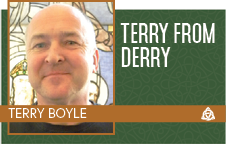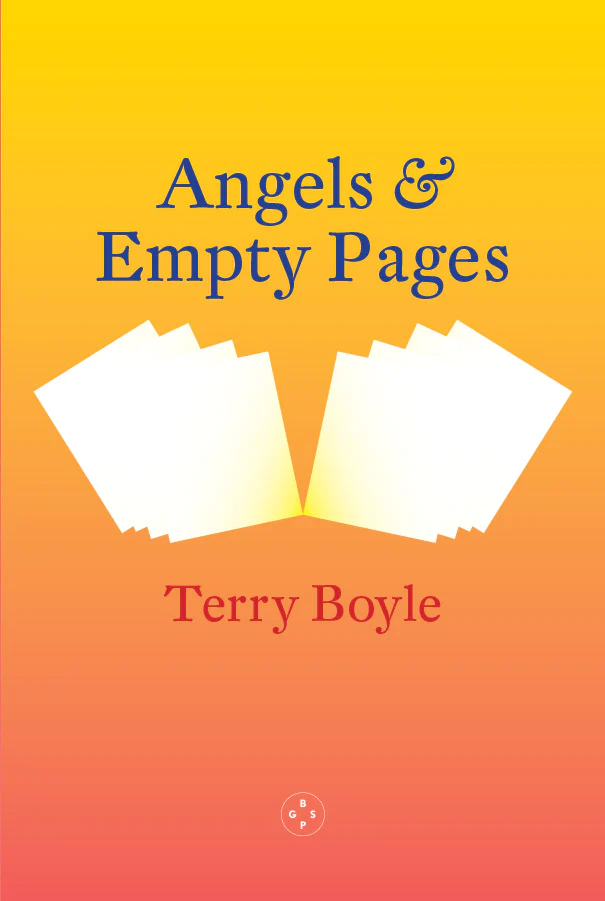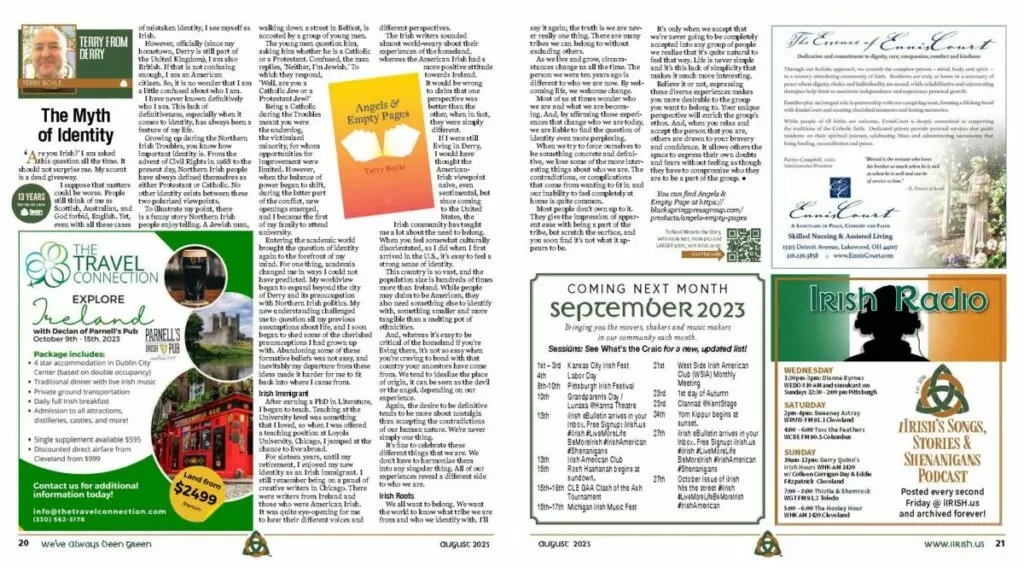Terry from Derry: The Myth of Identity
- John O'Brien
- August 13, 2023
- Edited 6 months ago
Table of Contents

By Terry Boyle
August 13, 2023
‘Are you Irish?’
I am asked this question all the time. It should not surprise me. My accent is a dead giveaway.
I suppose that matters could be worse. People still think of me as Scottish, Australian, and God forbid, English. Yet, even with all these cases of mistaken identity, I see myself as Irish.
However, officially (since my hometown, Derry is still part of the United Kingdom), I am also British. If that is not confusing enough, I am an American citizen. So, it is no wonder that I am a little confused about who I am.
I have never known definitively who I am. This lack of definitiveness, especially when it comes to identity, has always been a feature of my life.
Growing up during the Northern Irish Troubles, you know how important identity is. From the advent of Civil Rights in 1968 to the present day, Northern Irish people have always defined themselves as either Protestant or Catholic. No other identity exists between these two polarized viewpoints.
To illustrate my point, there is a funny story Northern Irish people enjoy telling. A Jewish man, walking down a street in Belfast, is accosted by a group of young men.
The young men question him, asking him whether he is a Catholic or a Protestant. Confused, the man replies, ‘Neither, I’m Jewish.’ To which they respond, ‘Well, are you a Catholic Jew or a Protestant Jew?’
Being a Catholic during the Troubles meant you were the underdog, the victimized minority, for whom opportunities for improvement were limited. However, when the balance of power began to shift, during the latter part of the conflict, new openings emerged, and I became the first of my family to attend university.
Entering the academic world brought the question of identity again to the forefront of my mind. For one thing, academia changed me in ways I could not have predicted. My worldview began to expand beyond the city of Derry and its preoccupation with Northern Irish politics. My new understanding challenged me to question all my previous assumptions about life, and I soon began to shed some of the cherished preconceptions I had grown up with. Abandoning some of these formative beliefs was not easy, and inevitably my departure from these ideas made it harder for me to fit back into where I came from.
Irish Immigrant
After earning a PhD in Literature, I began to teach. Teaching at the University level was something that I loved, so when I was offered a teaching position at Loyola University, Chicago, I jumped at the chance to live abroad.
For sixteen years, until my retirement, I enjoyed my new identity as an Irish immigrant. I still remember being on a panel of creative writers in Chicago. There were writers from Ireland and those who were American Irish. It was quite eye-opening for me to hear their different voices and different perspectives.
The Irish writers sounded almost world-weary about their experiences of the homeland, whereas the American Irish had a more positive attitude towards Ireland. It would be wrong to claim that one perspective was better than the other, when in fact, they were simply different.
If I were still living in Derry, I would have thought the American-Irish viewpoint naïve, even sentimental, but since coming to the United States, the Irish community has taught me a lot about the need to belong. When you feel somewhat culturally disorientated, as I did when I first arrived in the U.S., it’s easy to feel a strong sense of identity.
This country is so vast, and the population size is hundreds of times more than Ireland. While people may claim to be American, they also need something else to identify with, something smaller and more tangible than a melting pot of ethnicities.
And, whereas it’s easy to be critical of the homeland if you’re living there, it’s not so easy when you’re craving to bond with that country your ancestors have come from. We tend to idealize the place of origin, it can be seen as the devil or the angel, depending on our experience.
Again, the desire to be definitive tends to be more about nostalgia than accepting the contradictions of our human nature. We’re never simply one thing.
It’s fine to celebrate these different things that we are. We don’t have to harmonize them into any singular thing. All of our experiences reveal a different side to who we are.
Irish Roots
We all want to belong. We want the world to know what tribe we are from and who we identify with. I’ll say it again; the truth is we are never really one thing. There are many tribes we can belong to without excluding others.
As we live and grow, circumstances change us all the time. The person we were ten years ago is different to who we are now. By welcoming life, we welcome change.
Most of us at times wonder who we are and what we are becoming. And, by affirming those experiences that change who we are today, we are liable to find the question of identity even more perplexing.
When we try to force ourselves to be something concrete and definitive, we lose some of the more interesting things about who we are. The contradictions, or complications that come from wanting to fit in and our inability to feel completely at home is quite common.
Most people don’t own up to it. They give the impression of apparent ease with being a part of the tribe, but scratch the surface, and you soon find it’s not what it appears to be.
It’s only when we accept that we’re never going to be completely accepted into any group of people we realize that it’s quite natural to feel that way. Life is never simple and it’s this lack of simplicity that makes it much more interesting.
Believe it or not, expressing these diverse experiences makes you more desirable to the group you want to belong to. Your unique perspective will enrich the group’s ethos. And, when you relax and accept the person that you are, others are drawn to your bravery and confidence. It allows others the space to express their own doubts and fears without feeling as though they have to compromise who they are to be a part of the group.

- This Just In: MICHIGAN IRISH AMERICAN HALL OF FAME NAMES 2024 MEMBERS
- This Just In: Pittsburgh Day of Irish Entertainment is Coming
- This Just In: A week is still a long time in politics
- This Just In: Recognition of Palestinian Statehood an important step for the Palestinian people – Mary Lou McDonald TD
- This Just In: Update on Bringing National Women’s Soccer League to Cleveland

* Terry is a retired professor now living in Southern California. Originally from Derry, Northern Ireland, in 2004 he took up a position at Loyola University, Chicago, where he taught courses on Irish and British literature. Apart from teaching, Terry has had a number of plays produced and has recently been included in The Best New British and Irish Poets 2019 – 2021 (published by The Black Spring Press). He can be reached at: [email protected]

Check out Terry’s new book, Angels & Empty Pages!
Click the pic, the link, or copy and paste it to your browser: https://blackspringpressgroup.com/products/angels-empty-pages





